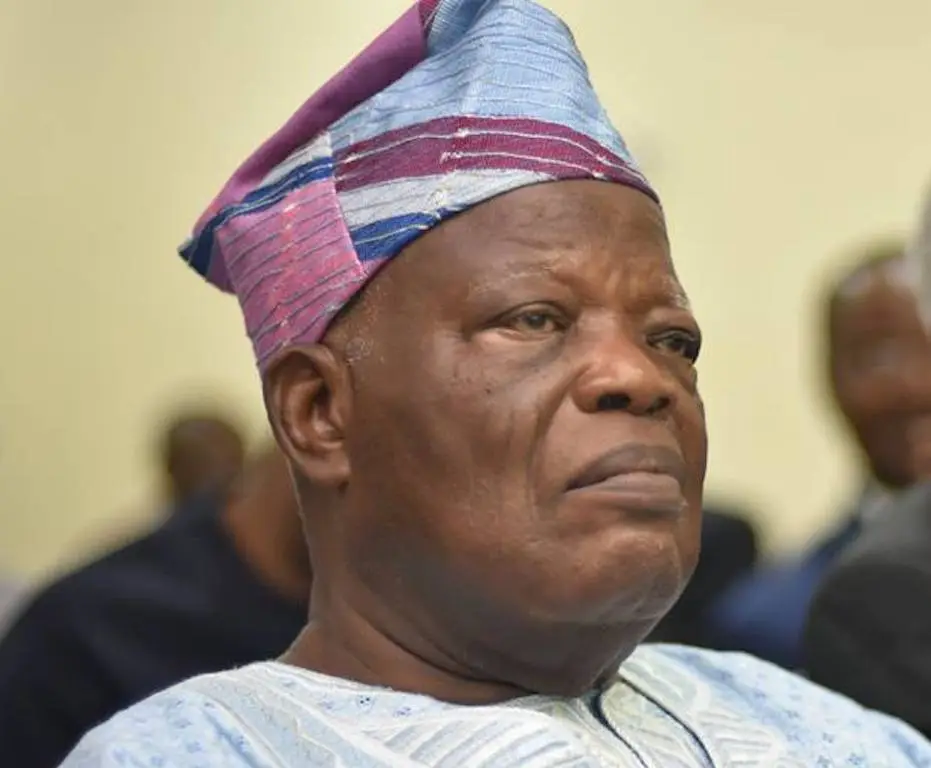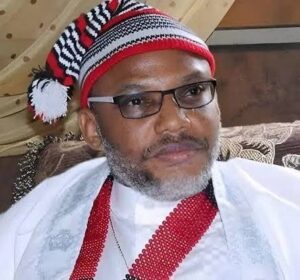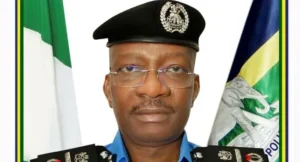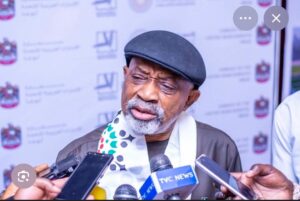
Emeritus Prof Anthony Asiwaju on Alaafin and Alaketu, Benin Republic Part 1
ALAAFIN IN COMPARATIVE YORUBA HISTORY: RESILIENCE AND ADAPTABILITY OF THE ALAKETU INSTITUTION IN CONTEMPORARY KETU, REPUBLIC OF BÉNIN, FORMER FRENCH DAHOMEY
By Emeritus Professor Anthony I. Asiwaju
- INTRODUCTION
The Coronation of an Alaafin of Oyo, as the Organisers of this all-important Colloquium have correctly perceived, is not just ‘historic’ for Ọ̀yọ́ and the Ọ̀yọ́-Yoruba, important as this in itself can be. It is ‘a momentous event in the annals of one of Africa’s foremost traditional royal institutions’.
The Alaafin institution, in its wider context of Old Oyo Kingdom, subsequently Empire, also ranks among the most intensely researched, if not indeed so incontestably the most scientifically investigated by so many generations of scholars and other researchers across several academic disciplines and professional backgrounds, in the equally historic wider homeland of other discreet ancient Yoruba kingdoms that stretches in an unbroken continuum that embraces the culture area of admittedly the largest concentration in today’s Southwest Nigerian Geopolitical Zone, but with quite substantial extended communities in contiguous Southeast Bénin through mid-belt Togo into Southeast Ghana, thus making the Yoruba incontestably the most important single African indigenous ethnic group and the culture area one of most most intensely impacted by the infamous European Scramble for Africa and eventual Partition into separate colonial enclaves that paradoxically constitute the territorial frameworks for today’s modern African sovereign national States.
This is why I must thank the Organisers of this event for accepting to make it a Colloquium of multiple speakers rather than a one-man-show Public Lecture that was initially contemplated. So far so good, as we are already witnessing, the benefits are infinite in an arrangement that allows for inclusiveness in place of an exclusivity.
I am particularly pleased about the inter-generational mix of lead participants, including the truly edifying Chairperson, all four of us privileged Nigerian historians of three distinct generations and different specialisations in.Yoruba studies, inclusive shared interests in the governance system every where predicated on the Obaship institution of which the Alafinate in Oyo .is incontestably the most spectacular
I must, therefore, preface my own,andlast main intervention by acknowledging all the previous speakers, beginning with a tribute, first and foremost to the Chairperson, our Mama, foundation-generation Nigerian historian, one of my own teachers and mentors at Ibadan, Emeritus Professor Bolanle Awẹ, academic Amazon made history in her own unique way, one-woman squad that was to break into a male-dominant, world-renowned Ibadan School of History
I also want to profoundly appreciate the sterling contributions already made in the presentation-in-Chief by Professor Ṣiyan Oyeweso, Osun State University, Pro-Chancellor, OAU, Ile Ife, a bynd the Lead Discussion by Professor Akin Alao, a celebrity of the History faculty also at Ile Ife. Both of them are Mama Awẹ́’s academic grandsons in addition to their being close friends of Oyo royal court in the reign of the immediate past Alaafin, outstandingly cerebral Oba(Dr) Lamidi Olayiwola Adeyemi III.
.My own generational location proudly followed that of Mama Awẹ́, in the rear of the same as for Professor J.A.Atanda, leading authority in modern Yoruba hisory.author of the highly reputed and pertinent book, THE NEW OYO EMPIRE: BRITISH INDIRECT RULE AND CHANGE IN WESTERN NIGERIA, 1894-1934(London: Longman, Ibadan History Series, 1973).followed that of the Awẹ́s, while that of Siyan Oyeweso and Akin Also has followed mine, thus making us on this side of the Colloquof elder Joseph Adebowale Atanda, now also of Blessed Memory, author of the illuminating THE NEW OYO EMPIRE: THE BRITISH INDIRECT RULE AND CHANGE IN WESTERN NIGERIA, 1894-1934(London, Longman: Ibadan History Series, 1973).
I came into the field of modern Yoruba studies closely on the heels of Atanda’s ‘…British Indirect Rule and Change in Western Nigeria’; but through the lense of the methodologically more challenging though highly rewarding Comparative History which was, for the first time, successfully applied to the study of the European imperialist partition and subsequent divergent Anglo-French colonial impacts on any specific culture area, in this case that of the Yoruba astride today’s Nigeria-Bénin(formerly Dahomey) border.
The reference here was the foundation 1971 Ibadan Ph.D thesis on ‘The Impact of French and British Colonial Rule on Western Yorubaland, 1889-1945′. Though covering the entire Yoruba-speaking area on both sides of the border in the areas of present-day Yewaland of Ogun State in Nigeria on the one hand and, on the other, the Département du Plateau of Bénin, the nucleus of the doctoral thesis was Ketu, the well known ancient Yoruba Kingdom, with its traditional territory split into two by act of the Anglo-French Treaty of 10 August 1889, half including the ancient capital and metropolitan area to the west in French Dahomey, now Bénin, and remaining eastern half, including Ìmẹkọ, the second largest Yoruba ancestral city in the heyday of the kingdom, about early 11th to late 19th centuries, situated in British Nigeria in the area of present-day Yewaland of Ogun State.
The Western Yoruba study emerged as the first ever case study of localised impact of the two leading European imperialist powers and became so published in a revised version in the renowned Ibadan History Series by Longman of London in 1976 under the title of WESTERN YORUBALAND UNDER EUROPEAN RULE, 1889-1945: A COMPARATIVE ANALYSIS OF FRENCH AND BRITISH COLONIALISM. It became the trail-blazer for other studies and scholarly publications, includinghighly scholarly works by younger-generation African Borderlands Scholars such as William F.S. Miles’ HAUSALAND DIVIDED: COLONIALISM AND INDEPENDENCE IN NIGERIA AND NIGER(Ithaca& London: Cornell University Press, 1994) and his more recent globally cast SCARS OF PARTITION: POST-COLONIAL LEGACIES IN FRENCH AND BRITISH BORDERLANDS(Nebraska, US: Nebraska University Press, 2014) and Paul Nugent’s SMUGGLERS, SECESSIONISTS AND LOYAL CITIZENS ON GHANA-TOGO FRONTIER(London: James Curry, 2002) and his more regional BOUNDARIES, COMMUNITIES AND STATE-MAKING IN WEST AFRICA(Cambridge: Cambridge University Press, 2019).
There were also our own’s landmark titles that emerged in consequence of almost insertiable quest for validating the methodology and, especially, the research findings in the unprecedented Western Yoruba case study of local impacts of French and British imperialism. These range from WEST AFRICAN TRANSFORMATIONS COMPARATIVE IMPACTS OF FRENCH AND BRITISH COLONIALISM(Lag s&Oxford: Malthouse Press Ltd, 2001), a collection of studies of other Colonial West African cross-border proximities mainly in the 1970s, PARTITIONED AFRICANS: ETHNIC RELATIONS ACROSS AFRICA’S INTERNATIONAL BOUNDARIES, 1884-1984(Lagos/London/New York: University of Lagos Press/C.Hurst Publishers/St. Martin’s Press, 1984/1985); ARTIFICIAL BOUNDARIES(University of Lagos Press, Inaugural Lectures Series, 1984), BOUNDARIES AND AFRICAN INTEGRATION: ESSAYS IN COMPARATIVE HISTORY AND POLICY ANALYSIS(Lagos: PANAF Publishing Incorporation, 2003), another book a f readings arising from studies published in the 1980s through the 1990s to historic Compendium, BRIDGING AFRICAN BOUNDARIES: CROSS-BORDER AREAS AND REGIONAL INTEGRATION IN COMPARATIVE HISTORY AND POLICY ADVOCACY(Austin, Texas: Pan African University Press, 2021), a three books in one that seeks to serve as a one-stop reading text for milestone 1976, 2001 and 2003, which have all gone for it of print.
- CHOOSING TOPIC FOR THE COLLOQUIUM
This is predicated on the mandate in the Organisers’ well articulated, even head-swelling, Letter of Invitation, that has so unambiguously spelt out the grounds for the invitation, to include:
– ‘as a distinguished historian and pre-eminent scholar in African Borderlands Studies’, further detailing that – ‘ Your pioneering contributions to the understanding of African history, as well as your extensive research on political structures and traditional institutions have enriched the global discourse on the resilience and adaptability of African polities…’.
Finally and, perhaps, most decisively, the Invitation grants the liberty to ‘choose a specific topic to situate[my] contribution within the broad theme of the Colloquium, which, to avoid any iota of doubt, is ‘THE ALAAFIN IN HISTORY AND MODERN LEADERSHIP: PRESERVING THE LEGACY AND DEFINING THE FUTURE’.
This intervention is understandably pitched on the Comparative Perspective on ‘The Alaafin institution in Comparative Yoruba History’ focusing on the analytical issues of ‘Resilience and Adaptability’, hallmarks, no doubt, of the richly scholarly documented history of the Yoruba monarchical institution, especially, in today’s ‘modern’ Oyo Atiba, all through the tribulations of the recreation in the immediate aftermath of the collapse of the Old Oyo Empire and tragic destruction of ‘Katunga’, the imperial capital(Ruins under a Forest Reserve, Northwest Ilorin, capital of Kwara State in the Nigerian North Central Geopolitical Zone, and lately officially adopted as a Nigerian Historical Heritage Site under the management of the National Museum and Antiquities) to prospects and challenges of the rise and fall of ‘the New Oyo Empire’ of colonial and post-colonial eras.
To be Continued.
(Talkingpoints @ Alaafin Coronation Colloquium by Anthony I.Asiwaju, mfr, fnal, fhsn; Emeritus Professor, Comparative African History and Borderlands Studies, UNILAG; Balogu of Imẹ̀ẹ̀kọ́, Fìmọ̀joyè of Ketu, Republic of Bénin, and Asiwaju of Yewaland, Ogun State, Nigeria)
Alaafin Owoade’s coronation holds tomorrow
Share your story or advertise with us: Whatsapp: +2348033202396 Email: sentinelnewsng@gmail.com










